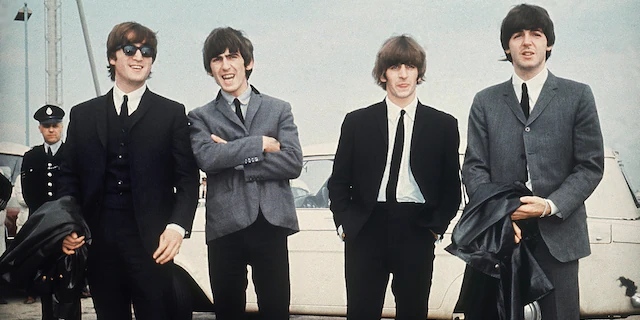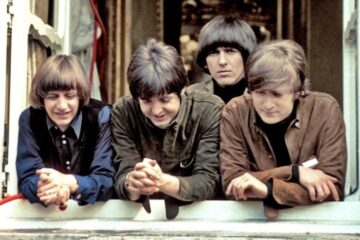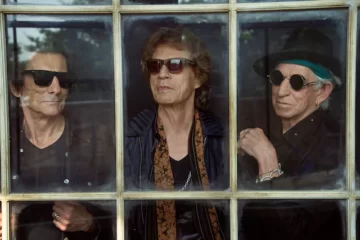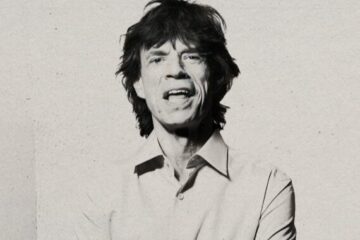MUSIC
Zapple Records: The Beatles’ failed avant-garde subsidiary of Apple Records
Three centuries after Isaac Newton’s eureka moment and eight years before Steve Jobs co-founded Apple Computer, Inc, The Beatles, too, saw something attractive in the temperate pome fruit. The Apple Corps record label came about following the death of The Beatles’ manager, Brian Epstein. While the company’s first project was the Magical Mystery Tour movie of 1967, it was officially founded in 1968 when the Fab Four returned from India.
The Beatles founded Apple Corps with a specific creative ethos intent on nurturing external talent and publishing personal material independently. On August 26th, 1968, Apple released their first four UK singles. Alongside The Beatles’ ‘Hey Jude’ were Mary Hopkin’s ‘Those Were the Days’, produced by Paul McCartney, Jackie Lomax’s ‘Sour Milk Sea’, written and produced by George Harrison, and ‘Thingumybob’ by the Black Dyke Mills Band.
Three months later, The Beatles released The Beatles (widely known as The White Album) as their first Apple LP. Although the band would only last another couple of years, Apple Corps prevailed and served as a conduit for the four members’ solo endeavours moving into the 1970s. As documented in Peter Jackson’s The Beatles: Get Back, the group played their final public performance in January 1969 from the rooftop of Apple Corps in Savile Row.
Although the Apple label is globally famous and synonymous with its founding band, fewer people are familiar with its ancillary label, Zapple Records. While this sounds like a joke conjured by the Rutles mastermind Eric Idle, Zapple was a real label devised by The Beatles as a home for more obscure, avant-garde music.
Announcing Zapple in May 1969, the company informed Billboard of their ambitions. “We want to publish all sorts of sounds,” they wrote. “Some of these sounds will be spoken, some electronic, some classical. We’ll be producing recorded interviews, too. Some of the people we put on record will be well-known some not so well-known.”
“This means that you’ll get plenty of variety,” the statement continued. “We don’t want Zapple to become a one-track record label. We’ll publish almost anything providing it’s valid and good. We’re not going to put out rubbish at any price.”
The announcement from Zapple also detailed the first three releases: John Lennon and Yoko Ono’s Unfinished Music No. 2: Life with the Lions; George Harrison’s experimental album created using a Moog synthesiser, Electronic Sound; and Listening To Richard Brautigan by poet Richard Brautigan.
Listening To Richard Brautigan consisted of literary readings, including thirty poems taken from The Pill versus The Springhill Mine Disaster, five stories from Revenge of the Lawn: Stories 1962-1970, and selections from three novels: A Confederate General from Big Sur, Trout Fishing in America, and In Watermelon Sugar.
“Our future Zapples will include records by Lawrence Ferlinghetti, Michael McClure, Charles Olson, Allen Ginsberg, and American comedian Lord Buckley,” Zapple added.
Writer and friend of The Beatles Barry Miles spearheaded the Zapple vision, contacting proponents of America’s Beat Generation to gauge interest in making poetic recordings. Most notably, Beat poet Allen Ginsberg suggested recording some of his famous mantras and reciting William Blake’s ‘Songs of Innocence’.
Within weeks of Zapple’s establishment, Miles travelled around America, visiting the likes of Ginsberg and Charles Bukowski to create tape recordings for the new label. Alas, back at home across the Atlantic, Alan Klein, the ruthless manager in charge of Apple Corps, dismantled the subsidiary endeavour, motivated by the Beatles’ instability and his own financial goals.
While recording an album with Ginsberg, Miles received a telegram requesting that he abandon the project. Zapple was discontinued before Listening To Richard Brautigan made it to press; hence, to this day, only two Zapple records exist: Unfinished Music No. 2: Life with the Lions and Electronic Sound. Listening To Richard Brautigan was eventually released in 1970 on Harvest Records.




